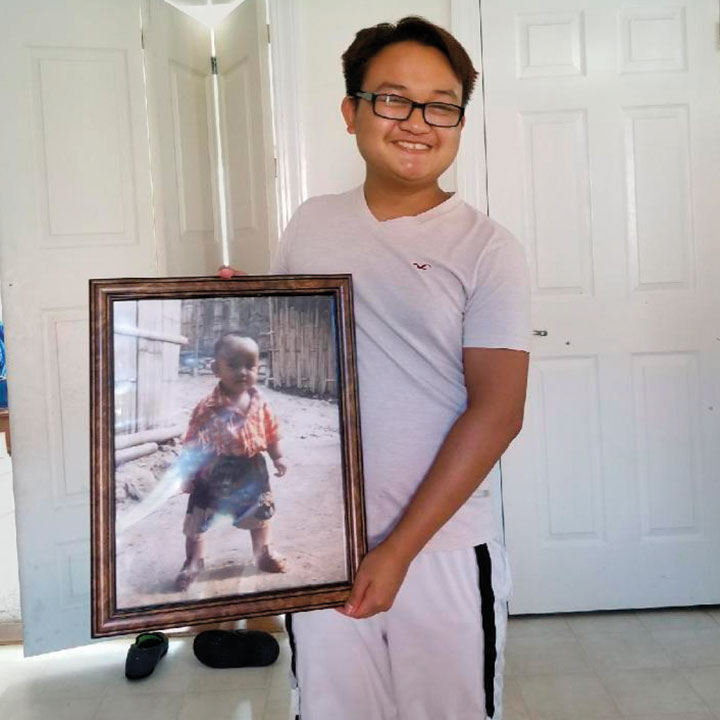Students Collect Personal Stories of Faith and the Refugee Experience
Stories surrounding the refugee crisis aren’t new, but talking to a refugee in person sheds a different light on what they experience. That was the case for Irene Hsu ’20, who worked on an oral history project of Princeton’s Office of Religious Life (ORL) during her eight-week summer internship at the Midtown Utica Community Center in Utica, N.Y. The center’s mission is to support the refugee and low-income population of that area.
Hsu spoke with refugees about their journey and struggles. Kar Bu and Sall Da — members of a Karen family originally from Myanmar — told of being forced out because of their ethnicity, fleeing to Thailand, and raising their children in a refugee camp before coming to this country in 2006. Hsu, a sociology major, said stories like these were eye-opening.
“That really resonated with me, because it made me realize just how desperate a lot of these refugees are,” she said, “and how they’re really fleeing from something that’s so violent and so atrocious.”
While this is not the first collection of oral histories from refugee populations, what’s distinctive is that these were conducted through the lens of religion.
Hsu was one of 14 students who conducted interviews for the project, which is one piece of the ORL’s larger Religion and Resettlement Project. Supported by a three-year, $550,000 grant from the Luce Foundation and co-sponsored by the U.S. Conference of Catholic Bishops, the goal is to explore the role faith plays in the experiences of refugees. The other two major pieces are a series of symposia and a program in which students conduct research and connect professors with lawyers to assist with the cases of asylum-seekers.
The oral histories will be archived in Mudd Library; more than 100 have been collected so far. ORL also hopes to find other educational uses for the recordings, said Katherine Clifton ’15, ORL religion and forced-migration coordinator. “It’s ever more important to preserve histories of vulnerable populations,” Clifton said, “especially today when the systems are being threatened by the political climate.”
While this is not the first collection of oral histories from refugee populations, what’s distinctive is that these were conducted through the lens of religion. Giving refugees the opportunity to discuss the role faith plays in their lives is important because it is often a major aspect of their experience, said Matthew Weiner, associate dean of religious life.
“Our religion was part of our journey because it gave us hope,” said Media Land, a member of the family interviewed by Hsu.
Weiner said the project helps students develop educational and career-building skills by pushing them outside their comfort zones. Oral history “triggers you to meet people you would not have met,” he said. “It triggers new encounters.”












No responses yet